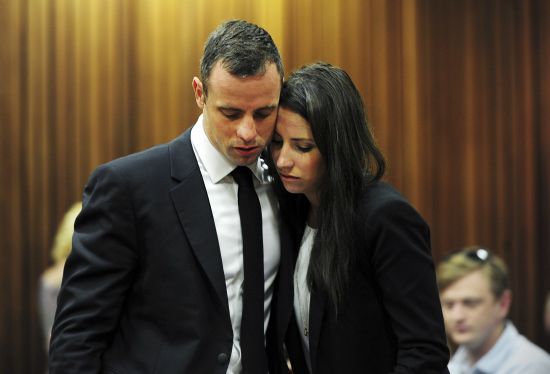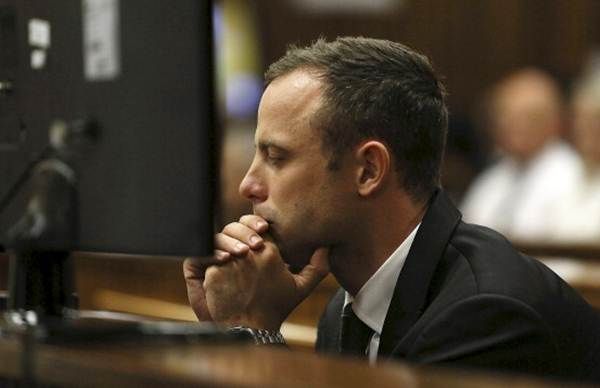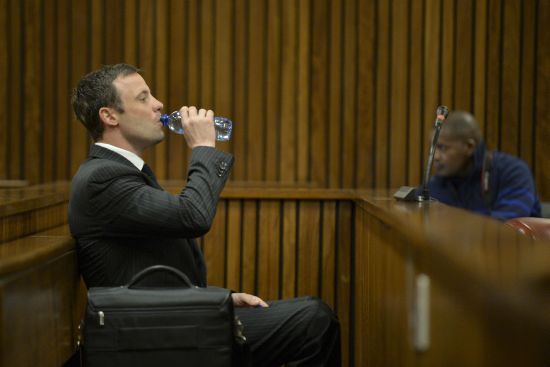
After 41 days of tears, anguish and at times gruesome testimony in the Pretoria High Court, Oscar Pistorius, the double amputee who became one of the biggest names in athletics, will learn this week whether he will spend the next 25 years behind bars.
In a fitting reminder of how South Africa has changed in the 20 years since apartheid, the fate of Pistorius, a wealthy white man from privileged roots, rests in the hands of a 66-year-old black woman from Soweto, Judge Thokozile Masipa.
Throughout the on-off six-month trial, Masipa - only the second black woman to rise to the bench in South Africa - has remained calm and impassive, seemingly impervious to the global interest in a case that has drawn comparisons to the 1995 murder trial of American football star OJ Simpson in California.
For Pistorius, the options when Masipa starts delivering her judgement on Thursday, winding up probably on Friday, are stark.
If she sides with the state, which argues that he murdered his model girlfriend Reeva Steenkamp in a fit of rage on Valentine's Day last year, he faces a mandatory life term - effectively 25 years behind bars before eligible for parole.
‘It's entirely possible that he could be convicted of murder but not premeditated murder’

A conviction of murder with less explicit intent could still see him incarcerated for up to 20 years.
Alternatively, Masipa could reject any notion of intent but still rule culpable homicide, equivalent to Britain's manslaughter, for the reckless or negligent killing of Steenkamp, who was shot through a toilet door at Pistorius's luxury Pretoria home.
Or she could accept Pistorius's assertion that he acted in 'putative' self-defence, firing four shots from a 9mm pistol through the door in the mistaken but genuine belief that an intruder was lurking behind it.
Given the explicit curbs in South African law on the use of lethal force without a direct threat to life, legal analysts say the final option is the least likely.
"It's entirely possible that he could be convicted of murder but not premeditated murder," said James Grant, a criminal law professor at Johannesburg's University of the Witwatersrand, who thinks that at best the court will rule Pistorius was negligent.
"The court is going to ask whether he acted as a reasonable gun-owner, and I think the answer to that is going to be no," he said.
If convicted, sentencing is likely to be delayed to another hearing in a few weeks, during which time Pistorius can apply for bail. He would also be almost certain to appeal.
Shadow of race

Since it first broke on the morning of February 14 last year, the case has gripped millions around the world who saw Pistorius as the embodiment of triumph over adversity, a man whose lower legs were amputated as a baby but who reached the semi-finals of the 400 metres at the London Olympics in 2012.
That same year, Time magazine included him in its list of the world's 100 most influential people, "the definition of global inspiration".
In sports-mad South Africa, the shooting caused an even bigger impact, the stunning downfall of a sporting hero feted by black and white alike in a society still divided by its racist past.
But as the trial unfolded that sentiment changed.
The prosecution painted a picture of Pistorius as a gun-obsessed hot-head - he faces three other weapons-related charges - who handled a loaded pistol in a packed restaurant and whooped with joy when he blew apart a water-melon with a high-calibre pistol, likening the red mush to brains.
With many glued to the live court broadcast, post-apartheid South Africa was forced to look in the mirror and ask itself some uncomfortable questions, not least about male attitudes to violence and the reality of whites and blacks still inhabiting largely different worlds.
Why, commentators asked, of 34 witnesses called were only two - a security guard and police ballistics expert - black?
Why, Masipa aside, were nearly all the leading protagonists white in a nation where whites are just 10 percent of the population?
Was South Africa really so dangerous that Pistorius and his friends were justified in feeling the need to carry handguns?
And, as backdrop to it all, the universal white suburban fear: how to protect yourself from an intruder - assumed to be black - in the middle of the night, a fear hardwired by years of apartheid propaganda about the 'swart gevaar' (black danger).
Some even wondered aloud whether Pistorius would be on trial at all had his victim really been a black male burglar rather than a white, female model.
"This imaginary body of the paranoid imaginings of suburban South Africa has lurked like a bogeyman at the periphery of this story for the past year.
"It is perhaps the most atavistic of white South African fears," wrote South African novelist Margie Orford at the start of the trial. "The threatening body, nameless and faceless, of an armed and dangerous black intruder."
More Related Stories
Trial of South African athlete Oscar Pistorius
'I made a mistake, I took Reeva's life,' Pistorius tells South African court











